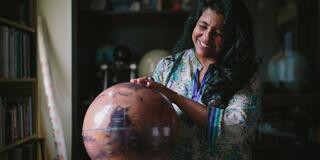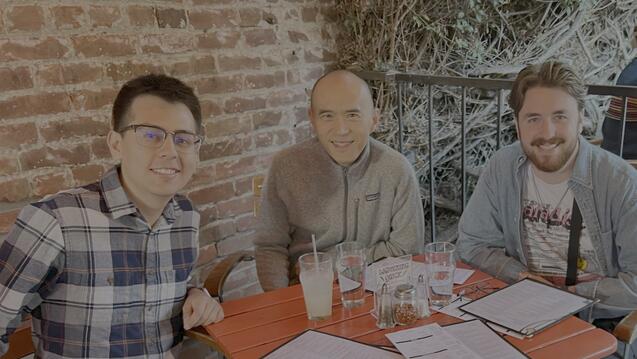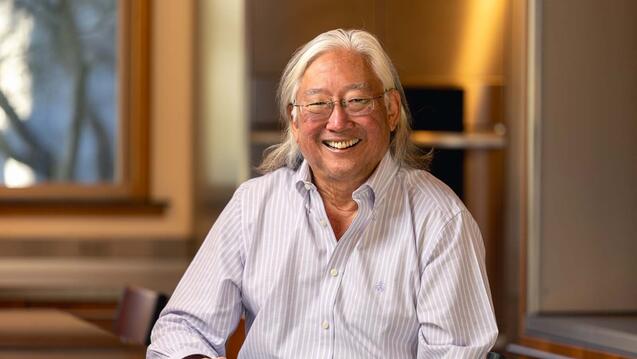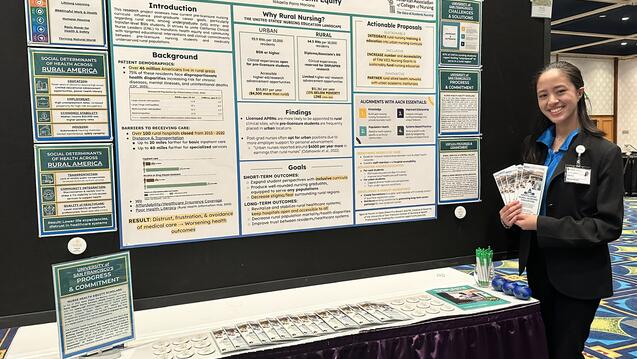Planetary House Hunting

In May, physicist Stephen Hawking told the BBC that humans must colonize another planet within 100 years if we want to survive. Two months later, a chunk of ice the size of Delaware broke off Antarctica. Today, USF’s Aparna Venkatesan, associate professor of physics and astronomy, talks climate change and the hunt for a new home.
Is Stephen Hawking full of greenhouse emissions?
Not really. If you think about climate change, global politics, and the growing threat of nuclear war, he has cause to be concerned.
So if we need a new planet to inhabit, do you have one in mind?
Our own moon is the best place to start. It’s relatively nearby, and there’s water ice in craters and on the dark side.
But is our moon a planet?
If you want a planet proper, I nominate Mars. Mars is the planet for desert lovers. Red rocks. A canyon as wide as the continental U.S. And a volcano the size of Arizona and three times higher than Mount Everest. Best downhill skiing in the solar system. NASA says a mission to Mars is possible by the 2030s.
In the meantime, if carbon dioxide is our doom, shouldn’t we all stop driving cars, like, yesterday?
Sure, cars are bad, but so is the carbon footprint of livestock farming. CNN had a recent story on why beef is the new SUV. And refrigerators are terrible. The typical fridge is cooled with hydrofluorocarbons, which are far more damaging to the atmosphere than carbon dioxide is. Get a fridge that’s cooled with isobutane or other hydrocarbons. Also, go easy on your heating and air conditioning.
What else on Earth is the most positive, constructive thing we can do to save our species?
Wake up. Respect climate scientists and follow their recommendations, both at a national and personal level. I think that we, as a civilization, have come of age technologically and it’s time to get serious about space colonization. But I also feel that Earth, with all its problems and human challenges, is still home.
Know someone with a powerful USF story? Let us know! usfnews@usfca.edu Twitter @usfcanews


